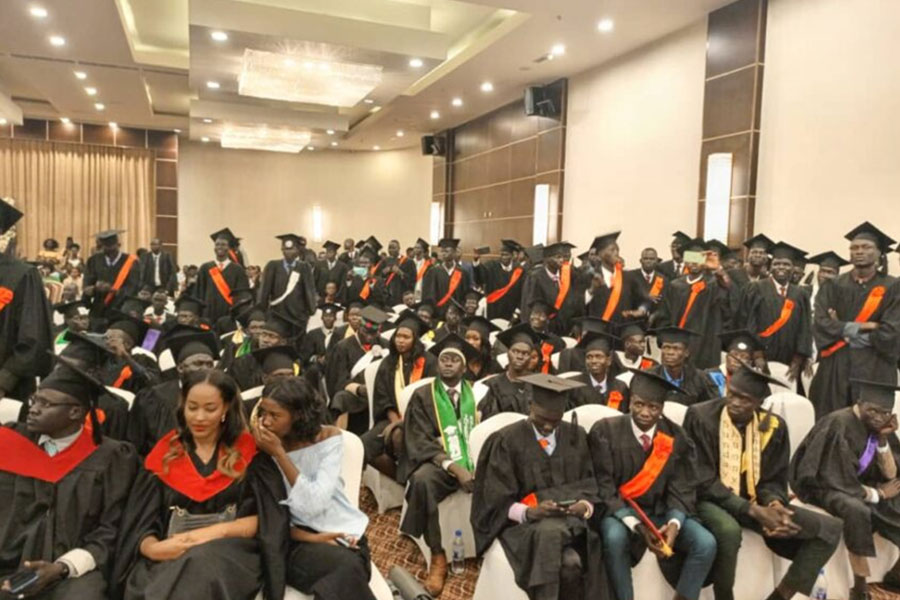
Radar | May 25,2019
Dec 11 , 2020
By Kidist Yidnekachew
It is often the case that human beings that are put on a pedestal tend to grow an overinflated ego of themselves overnight. They, in turn, become a detriment not only to the individual but also to society as a whole.
Becoming famous or a prominent figure is arguably not as difficult anymore. Anyone with a smartphone or an atom of dignity in their body can do it fairly easily.
But at what cost?
A society that values those who are boorish, obnoxious and outspoken all the while possessing little to no knowledge of the subject matter they pontificate on will cause irreversible damage to the body politic. In several ways, this has much to do with activists, a calling that is critical for bringing about change in our societies.
Unfortunately, it has not had the intended consequence in Ethiopia. Activists can be found advocating less sincerely for justice and equality but tooting nationalism with most of their time and energy. Nevertheless, what should be worrying is not them per se but the society that keeps producing such individuals.
There is a perceptible and rising trend among a society that individuals are supposed to be above criticism. It starts at home and in schools. Certificates, trophies, accolades and awards are presented to students who had in some way deserved or earned them, and they still are. Bad behaviour is likely to be met with some form of punishment.
Had I told my parents a teacher scolded me and sent me out of the class when I was in school, they would have said that I deserved it. They wanted me to have some respect for authority. Nowadays, parents are more likely to go with fiery fury and verbally rip the teacher apart for looking at their child in the wrong way. Their children are to be pampered and indulged. The accumulated knowledge and experience of their elders is not to interfere with the bubble that is to be created for them.
That bubble only grows and comes to encompass a certain worldview. Now again, they are not to be criticised or challenged. Anyone that does is not "woke" just yet. On the contrary, every single one of their comments, opinions and emotions is to be eagerly awaited and appreciated. It is these people that give millennials a stereotype.
Parents who think they are benefiting their children by shielding them from the truth can only hurt them, in the process creating self-entitled individuals. We often hear parents praise and at times exaggerate their children's achievements.
"You're saying that because she is your daughter or he is your son," we may smile and say.
Sometimes the praise is fitting and deserving as the children possess the talent or qualities the parents were referring to. But usually, it is empty words of worship, exasperating their ego. At the end of the day, if they are not worthy of the praise, it means little. It will keep them from striving to make themselves better and improving their set of skills.
A person who thinks that they are already the best at something would not get motivated to do better; and in life, there is always room for improvement. Furthermore, it creates egotistical individuals who think that they are unbeatable. And whoever tells them otherwise becomes a "hater." These kind of people expect the world to revolve around them. And when it does not, they get angry and bitter.
On the same token, some parents give their children less encouragement than they deserve. Their children grow up becoming obsessed with perfection and often have feelings of inadequacy. The parents of these kind of children think they are doing them a favour, making them hard workers. They think this sort of tough love prepares their children for the unforgiving world that awaits them. But this is also a bad thing as it creates self-doubting individuals who always second guess and underestimate their potential.
In the end, there is little else fitting for the healthy and emotional development of children than to be loving but honest with them.
PUBLISHED ON
Dec 11,2020 [ VOL
21 , NO
1076]


Radar | May 25,2019

Life Matters | Oct 26,2024

Fortune News | May 24,2025

Life Matters | Mar 25,2023

Fortune News | Aug 14,2021

Advertorials | Oct 10,2019

Viewpoints | Mar 26,2022

View From Arada | Nov 09,2019

Radar | May 02,2020

Life Matters | Oct 20,2024

My Opinion | 131548 Views | Aug 14,2021

My Opinion | 127903 Views | Aug 21,2021

My Opinion | 125879 Views | Sep 10,2021

My Opinion | 123509 Views | Aug 07,2021

Dec 22 , 2024 . By TIZITA SHEWAFERAW
Charged with transforming colossal state-owned enterprises into modern and competitiv...

Aug 18 , 2024 . By AKSAH ITALO
Although predictable Yonas Zerihun's job in the ride-hailing service is not immune to...

Jul 28 , 2024 . By TIZITA SHEWAFERAW
Unhabitual, perhaps too many, Samuel Gebreyohannes, 38, used to occasionally enjoy a couple of beers at breakfast. However, he recently swit...

Jul 13 , 2024 . By AKSAH ITALO
Investors who rely on tractors, trucks, and field vehicles for commuting, transporting commodities, and f...

Jun 28 , 2025
Meseret Damtie, the assertive auditor general, has never been shy about naming names...

Jun 21 , 2025
A well-worn adage says, “Budget is not destiny, but it is direction.” Examining t...

Jun 14 , 2025
Yet again, the Horn of Africa is bracing for trouble. A region already frayed by wars...

Jun 7 , 2025
Few promises shine brighter in Addis Abeba than the pledge of a roof for every family...

Jun 29 , 2025
Addis Abeba's first rains have coincided with a sweeping rise in private school tuition, prompting the city's education...

Jun 29 , 2025 . By BEZAWIT HULUAGER
Central Bank Governor Mamo Mihretu claimed a bold reconfiguration of monetary policy...

Jun 29 , 2025 . By BEZAWIT HULUAGER
The federal government is betting on a sweeping overhaul of the driver licensing regi...

Jun 29 , 2025 . By NAHOM AYELE
Gadaa Bank has listed 1.2 million shares on the Ethiopian Securities Exchange (ESX),...